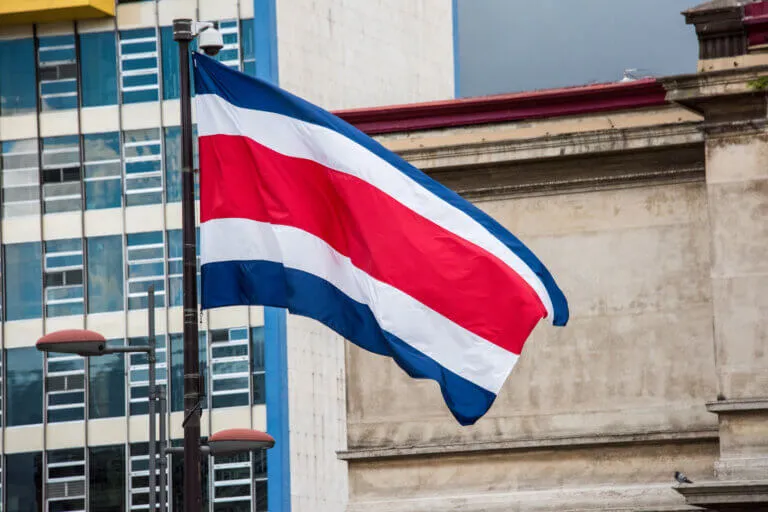This blog was last updated on April 2, 2025
Earlier this year, Massachusetts Governor Maura Healy revealed her Fiscal Year 2026 budget proposal calling for $59.6 billion in total spending—a 2.6% increase from FY25. At least in part, the added funding is intended to stabilize the Massachusetts mass transit system (the MBTA), enable critical investments in transportation and higher education, support infrastructure improvements, protect key services, and otherwise improve the quality of life for Massachusetts residents.
As part of the plan, Governor Healy is also suggesting that Massachusetts end the current sales tax exemption for candy. If enacted, this change is expected to raise an additional $25 million. As this change doesn’t come anywhere close to paying for the additional $1.5 billion in proposed additional spending, it begs the question, why is this new tax levy part of the plan? Is there a motive beyond the tax revenue?
Is the Massachusetts Candy Sales Tax new?
Governor Healy doesn’t consider it a new tax but rather a loophole closure. In a recent statement, she explained:
“What this is doing is simply saying when you go to the grocery store, instead of having candy treated like a purchase of bread and eggs and milk, essential groceries, that candy is now going to treated in the same way as when you go to the bakery in the back of the grocery store and pick up cupcakes for your kids.”
Unfortunately, the facts suggest otherwise. Currently, Massachusetts exempts food products for human consumption from sales tax. This includes most grocery items including fruits, vegetables, dairy, meats—and yes, even candy and soft drinks. Excluded from the exemption are restaurant meals and certain other “prepared” items, depending on the context.
The Massachusetts Department of Revenue defines “candy” as:
Food products with a sugar or confection base, including breath fresheners, gum, mints, and health foods which consist primarily of sugars, but excluding dietary supplements and adjuncts.
The exception Governor Healy is referring to applies to certain bakery items. While baked goods sold in units of six or more for off-premises consumption remain exempt under the grocery rule, they become taxable when sold in units of five or less. For example, if you go the bakery section of the supermarket and buy five cupcakes, as Governor Healy suggests, the sale would be taxable.
If you buy five packaged cupcakes in the grocery isle, the regular exemption still applies. Massachusetts is drawing a line between food bought to be eaten at home versus items for immediate consumption. Whether someone could realistically “immediately” eat five cupcakes, is a question for another day.
So, while this may not technically be a new tax, it’s certainly extending the tax to cover items that would otherwise be exempt. The rule applicable to bakery items serves an entirely different purpose and it feels like a stretch to suggest that a new law taxing candy is in some way related.
How do other US states tax candy?
Many states offer sales tax exemptions or reduced tax rates on grocery staples. Only a handful of states, such as Hawaii, Idaho, Mississippi, and South Dakota, apply their full sales tax rate to groceries. The rationale behind the exemption relates to the regressive nature of sales tax. Sales tax disproportionately impacts lower-income individuals, so states exclude essential goods from taxation. Although grocery food is the most common example, others include prescription drugs, feminine products, clothing and diapers.
However, candy is often treated separately from grocery staples. As of April 2025, only 12 states and Washington, D.C. fully exempt candy from sales tax. The Streamlined Sales Tax Agreement, followed by 24 Member States, defines candy as:
A preparation of sugar, honey, or other natural or artificial sweeteners in combination with chocolate, fruits, nuts or other ingredients or flavorings in the form of bars, drops, or pieces. “Candy” shall not include any preparation containing flour and shall require no refrigeration.
Under this definition, many candy-like items such as Twix bars (flour) or Pixie Stix (not in bar, drop or piece form) may remain tax-exempt in states using this definition. Unlike most states that initially decided whether or not to tax candy, Massachusetts is revisiting and rewriting its tax code, which makes Governor Healy’s proposal particularly unusual.
Why is Massachusetts considering a candy sales tax?
A handful of commentators suggest that Governor Healy may have a public health goal in mind. In fact, a few proponents of the candy tax expressed hope that the added levy would lead people to make healthier food choices.
Is tax sometimes used to influence behavior? Indeed, it is. States will sometimes choose to apply higher taxes (sometimes called a “sin tax”) to certain categories of goods. Items like tobacco, alcohol, and motor fuel are often subject to particularly high tax rates. In recent years, states impose extra taxes on cannabis and vaping products. One of three rationales often underly these policy choices:
- Price Inelasticity: Governments know that consumer desire for certain goods persists even at higher prices. Adding more taxes in this context adds to tax coffers.
- Price Elasticity: Governments may believe that higher prices will discourage people from buying certain products and steer them to other options.
- Societal Costs: Consumer behavior can sometimes create a net cost to society such as increased healthcare expenditures. States will sometimes look to recoup these costs by taxing the underlying consumption.
Historically, states have not imposed “sin taxes” on candy. Sugary drinks are a different story. Based on the notion that soda causes increased instances of diabetes as well as heart, kidney, and liver disease, cities such as Boulder, Philadelphia, Okland, Seattle and San Francisco have all adopted special soft drink taxes. Not all work the same, but most are charged at the distributer level on a per-ounce basis. Consumers pay for the tax though higher prices at the counter.
In many cases, the revenue earned from these taxes are earmarked for public health initiatives including obesity prevention. But in the end, local policy makers adopted these measures with the clear goal of reduced consumption. Some studies suggest that on that front, they are successful.
One place that did opt to add a tax to candy is the Navajo Nation. Under the rules of their Healthy Diné Nation Act (HDNA), the Nation imposes an added 2% tax on unhealthy foods and beverages. The HDNA’s stated goal is to improve the health of the Navajo people by promoting healthier diets and lifestyles.
Concluding Thoughts
Only time will tell whether Gov. Maura Healy’s proposal will be enacted into law. While the notion of excluding candy from a grocery exemption is far from original, Massachusetts decision to revisit and rewrite an existing rule is unusual. Knowing that the projected added tax revenue from taxing candy is small, it’s reasonable to conclude that the Governor is suggesting this added “sin tax” based on the notion that reducing candy consumption in the Commonwealth represents good public policy.






